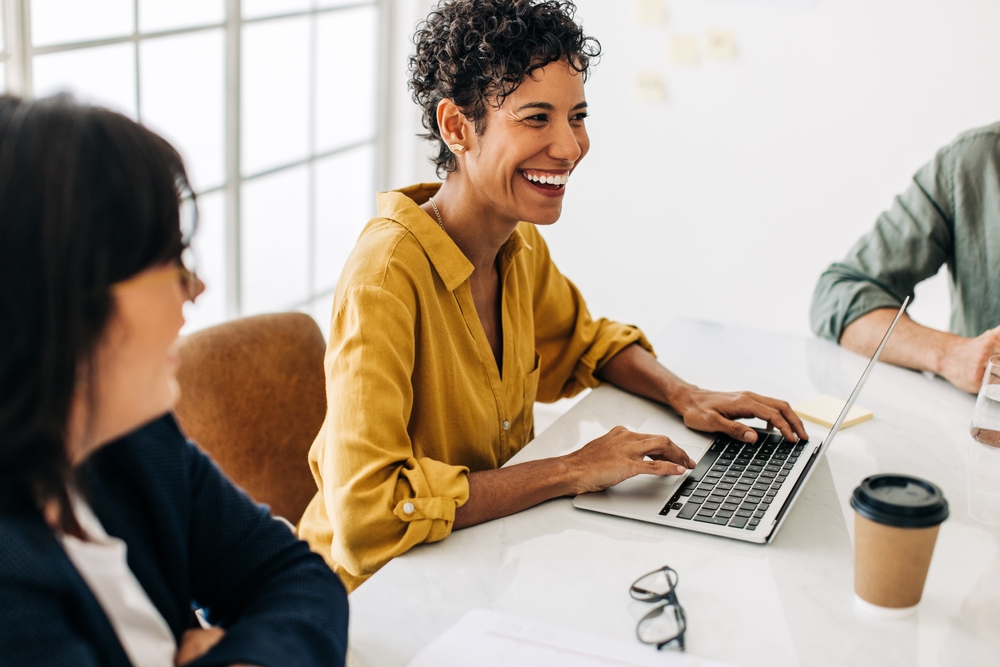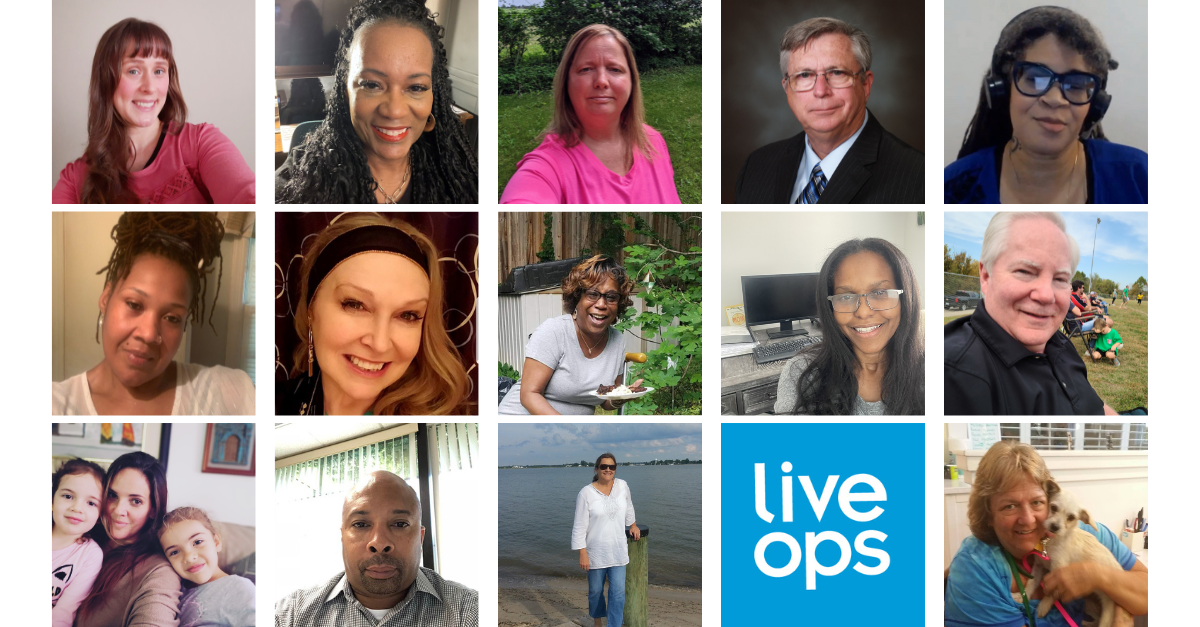Liveops Employee Resource Group Spotlight: DEFY
minutes
October is National Disability Employment Awareness Month, so we’re showcasing the DEFY Liveops Employee Resource Group. Meet Mary, Robyn, and Briana, three Liveops employees who help lead this ERG. Defy stands for Defining Everyday For Yourself. We are persons with disabilities, loved ones and caregivers of persons with disabilities, and their allies!
Why are you passionate about this ERG?
Robyn: I am hearing impaired, my son has Chron’s disease, and my daughters and one son suffer from anxiety disorder and depression. I have seen first-hand the challenges and inequalities faced by people who have disabilities and I am an advocate for them and their journeys.
Briana: This ERG means a lot to me as someone who has struggled with severe anxiety and depression my whole life. I often felt alone, like no one really understood “my” anxiety or depression since it differs from the usual narrative. This group provides access to resources to help others understand people like me.

Mary: I have a son with autism. His journey through life so far has really opened my eyes to the challenges and inequalities those with disabilities face. I am a huge advocate for equity and inclusion.
What do you hope to accomplish through this ERG?
Mary: Destigmatize mental illness, increase awareness of the unique challenges faced by those with disabilities, and provide practical ways to support co-workers impacted by disabilities.
Briana: I want to create awareness around mental health and put knowledge into people’s hands. A little information can go such a long way.
What have you learned since launching this ERG?
Mary: I have learned how far-reaching this topic is! So many people are impacted by disabilities.
Robyn: I have learned that not all disabilities look the same and that so many with the same disability suffer differently. I’ve learned that so many amazing resources are available.
Tell us about one of your favorite memories involving this ERG.

Robyn: We held a mental health awareness session and the amount of support and sharing that went on was so heartwarming. Also to hear how so many had experienced the same or similar issues and to know that we were not alone was very uplifting. To be able to provide that type of support to so many people is life-changing.
Briana: Honestly, any time we all get together to share knowledge and experiences is an amazing memory for me! All of the love and support are so amazing.
Why is it important to have this ERG in your place of work?
Robyn: I think that it’s important to have this ERG because of the awareness and education it provides, as well as the support and safe space it creates for its members.
Briana: I agree with Robyn, it is so important to give awareness and education but also to have a group of people who either understand you or are willing to listen is just amazing.
Are there any assumptions about the Differently Abled community that you’d like to challenge? Stereotypes or stigmas?

Briana: I think a lot of people assume. The problem with invisible illnesses and mental illnesses is that you can not see them from the outside. People who know me know bubbly, loving, funny, and kind, but rarely know the battle I fight against my own mind and body every single day. I know that is the case for many people no matter the fight they are fighting.
Robyn: The biggest would be just because someone looks healthy, happy, put together, or able-bodied doesn’t mean they are. You never know what someone is going through. Always be kind.
October is National Disability Employment Awareness Month (NDEAM), and this year’s theme is ‘America’s Recovery: Powered by Inclusion. Do you have any advice on how employers can be more inclusive in the workplace?
Mary: Allow employees to use messaging platforms (like Slack) as a form of communication, incorporate disability awareness into employee onboarding, train managers and supervisors to be aware of signs of mental illness and the appropriate way to respond.
Robyn: Provide more mental health awareness training and offer fun group activities. Doing events that lighten the workday can definitely play a role in mental health and that is a big part of being inclusive.
Briana: I definitely think including more training about how mental health and other disabilities can present themselves in the workplace is important! Before Liveops, I’ve never had an employer care about those things, or provide an educational session built around that topic!
What do you think organizations can do to increase awareness of diversity initiatives within their workplaces?
Robyn: There are so many models out there they can follow. I think Liveops does an amazing job of increasing awareness and diversity.
Briana: I think having more knowledge around the topic, offering seminars, training, parties, etc that not only give you knowledge on diversity but make it fun and exciting can help!



